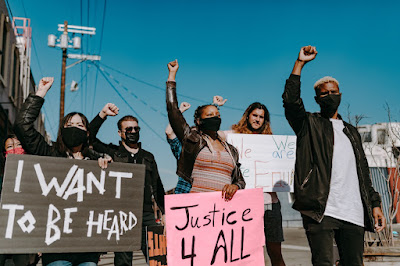With the conflict going on between the Israelites and the Palestinians, the question arises: Whose land is it? From the Book of Genesis to the Book of Joshua, it is called the Land of Canaan. But who is Canaan? Canaan is the grandson of Noah who was cursed because of the sin of his father Ham when he made fun of Noah's nakedness. Genesis 9:18 - 27 tells the story of how this happened. Canaan was cursed to be a slave of Shem and a slave of Japhet.
The sons of Ham were Cush, Egypt, Libya and Canaan and their ancestors are said to bear their names. Canaan too had descendants and a land in which his descendants dwelled. The Land of Canaan. The Land God promised to give to Abraham and his descendants.
Did God give the Land of Canaan to Abraham and his descendants to wipe the Canaanites from the face of the Earth? I think not. When God was making a covenant with Abraham(then Abram) in Genesis 15, he told him that his descendants would be slaves in a foreign land. Abraham was a descendant of Shem and not of Canaan and according to the curse, Canaanites were supposed to be slaves of the descendants of Abraham. However, God decided that the descendants of Abraham suffer slavery and cruelty in a foreign land before coming to possess the land of Canaan. I believe God did this so that the descendants of Abraham could develop empathy regarding slavery before coming into the Land of Canaan.
Gibeon was a Canaanite and later an Israelite city, which was located north of Jerusalem. According to Joshua 11:19, the pre-Israelite-conquest inhabitants, the Gibeonites, were Hivites; according to 2 Samuel 21:2, they were Amorites. - Wikipedia.
The Book of Joshua in chapter 9 tells the story of how the Gibeonites made a treaty with the People of Israel. I believe that such wisdom as would be required for the Gibeonites to make the treaty the way they did, could be possible with revelation from God. So as a result of this treaty, Gibeonites ended up being workers in the Houses of God. I believe it is better to be a servant in the House of God than to be a slave of Shem or of Japhet. Even David testifies in Psalm 84:10
Better is one day in your courts than a thousand elsewhere; I would rather be a doorkeeper in the house of my God than dwell in the tents of the wicked. - Psalms 84:10
As a result of the treaty between Gibeonites and the people of Israel, In 2 Samuel 21, we learn that God punished Israel with famine because of the guilt of Saul who is said to have killed some of them and wanted to kill them all. It is only when David reparations by handing over the seven descendants of Saul to the Gibeonites to be hung in Saul's home town, that God answered the prayers of the people of Israel.
It is my understanding from this that God does not have intentions to wipe out the people of Canaan from the face of the earth but would rather have them close to Himself in His House of Worship.
So whose land is it? It is the Land of Canaan and Israelites are just Stewards.




